A while ago, when I started creating content from my phone, I realized that screen recording on Android was going to become something I would do almost every day. Whether it was to record a gameplay, a quick tutorial or explain how to install an app, I needed a tool that was smooth, good quality and, of course, free.
In this article, I’m going to share with you my real experience using different mobile screen recording apps, both the built-in options and the best free apps from the Play Store. All this from the point of view of someone who records screen on a daily basis and who has already tried a bit of everything.
And yes, there are many apps that seem paid, but they are completely free, with no watermarks, no time limits or annoying things. Here I tell you which are the 5 that have worked best for me, what advantages they have, what to avoid and what tips can help you if you are starting out.
Table of contents
Why I decided to start recording screenshots on my Android
It all started when a friend asked me for help to install a game mod, and I realized that explaining it to him by message was a nightmare. So, I recorded a quick video showing the step by step, and I realized that it was much clearer and useful. From that moment on, I started using the Samsung screen recorder, which comes preinstalled on my phone.
If you have a Samsung or Xiaomi phone, I can tell you that most of them already include a built-in screen recording option. In my case, the native Samsung app is still very good: it allows you to choose whether you want to record only the system audio, the microphone or both, and it has a pretty good quality. Plus, it’s perfect for quick, uncomplicated recordings.
But of course, when I started recording more often -especially games like Stumble Guys, Geometry Dash or Plants vs Zombies-I needed something with more features: better resolution control, more fluidity and above all, more recording customization options. That’s when I started trying external apps, and after testing more than ten, these were the ones that earned their place in this top.
1XRecorder – My favorite for its quality and ease of use
The first time I used XRecorder, from the same developers of InShot, I was surprised that such a complete app was totally free. Since then, it has become the best app for recording screen and internal audio in my daily workflow.
Why do I like it so much?
- No watermarks (if you configure the app properly).
- You can record in Full HD and choose the FPS rate (up to 60 fps).
- Includes basic editing tools at the end of the recording.
- Records internal and external audio at the same time, ideal for annotated gameplays.
- It has floating mode, which allows you to pause or stop recording easily.
Something I also love is that you don’t need to root your device or do anything weird to make it work. You just install it, give it permissions, and that’s it. I have recorded more than 200 clips with this app and it has almost never failed me.
It is ideal if you record video games, make tutorials or want to prepare content for social networks from your cell phone.
2AZ Screen Recorder – Powerful, customizable and reliable
Before XRecorder, my main app was AZ Screen Recorder, a super complete tool that I discovered looking for a free mobile screen recorder app. It has a lot of advanced options not always found in other apps, even paid ones.
Highlights:
- You can choose the resolution, bitrate, and type of audio to record.
- It has the option to activate the front camera to record yourself while recording screen (perfect for classes or reviews).
- Includes live-streaming function.
- You can schedule recording or use gestures to start recording.
- It also offers quick editing at the end.
The only reason why I changed it for XRecorder is that on my current phone, the second one runs better. However, if you are looking for a free android screen recorder app with many features, this is still a great option.
3ADV Screen Recorder – Simple but powerful
ADV Screen Recorder is another app that I highly recommend, especially if you are new to this or do not want to complicate with many configurations. Although it is not as famous as the previous ones, it has what it takes to offer quality recordings without watermarks and without time limits.
Key advantages:
- Minimalistic and easy to understand interface.
- You can draw on the screen while recording, which has helped me to explain processes step by step.
- Supports internal audio and microphone recording.
- Runs well on mid-range cell phones.
I consider it ideal if you are going to record simple tutorials, app explanations, virtual classes or even if you just want to save an important video call.
4Mobizen – Ideal for quick and uncomplicated recordings
Mobizen was one of the first apps I tried when I started recording screen on Android. It has a great community behind it, and although it’s not the most advanced, it’s still very good for those looking for smooth recordings without too many previous steps.
What I liked:
- Intuitive interface, very easy to use.
- You can customize the video quality, resolution, and FPS.
- Allows you to record internal sound in some compatible devices.
- Includes simple editing tools.
- Clean mode for recording without floating logo or marks.
One of Mobizen’s strengths is that it doesn’t overwhelm with settings. It’s perfect if you want to record something quick, like a new app, a video call or a gameplay without worrying too much about technical settings.
5Android screen recorder (integrated option).
I couldn’t leave out the native option that many Android phones already come with. Personally, I use the Samsung screen recorder that comes preinstalled, and I find it amazing how useful it is for everyday tasks.
Advantages that I take advantage of the most:
- Record internal audio, microphone or both.
- You can adjust the video quality and file size.
- It has a convenient control bar that hides automatically.
- No need to install anything extra, no need to worry about ads or weird permissions.
If you use Samsung, Xiaomi, OnePlus or even some Motorola, you probably already have an app to record cell phone screen included. The best thing about these tools is their stability: they rarely fail, and they are optimized for the hardware of the device itself.
Key tips I learned while screen recording on Android
After more than a year of using recording apps constantly, here are some practical tips that have helped me improve quality and avoid common mistakes:
What is the best app for screen and internal audio recording?
It depends on what you are looking for:
- If you want the most complete and versatile, go for XRecorder or AZ Screen Recorder.
- If you’re looking for something very easy to use, ADV Screen Recorder or Mobizen are your allies.
- And if you just need to record the screen on Android without complication, try the built-in option of your device first.
Personally, XRecorder is the one I currently use the most because it offers the best combination of quality, customization, and stability. But all the options on this list have something to contribute.
Recording content from the cell phone is no longer something exclusive for YouTubers or content creators. Today, anyone can do it easily with a good app, without paying a penny. Best of all, these tools allow you to share knowledge, save important moments or simply express yourself creatively.
I still record almost every day, and if you’re just starting out, I hope this guide has helped you find the best app to record screen and internal audio for your needs.
Do you use any other that I didn’t mention here, do you have any tricks to record better on Android, let me know in the comments or on social media! And if this article helped you, share it with someone who requires it.


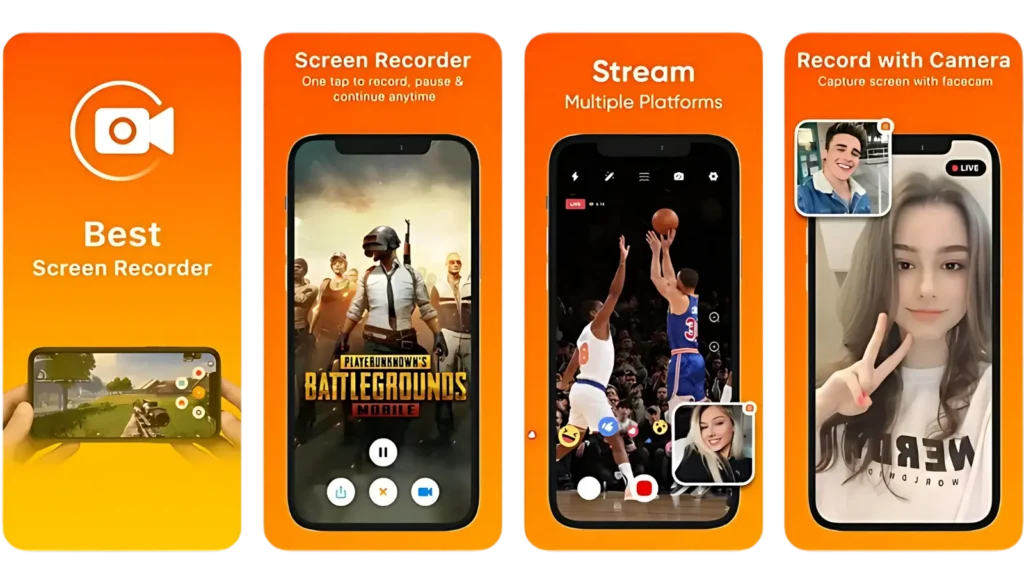

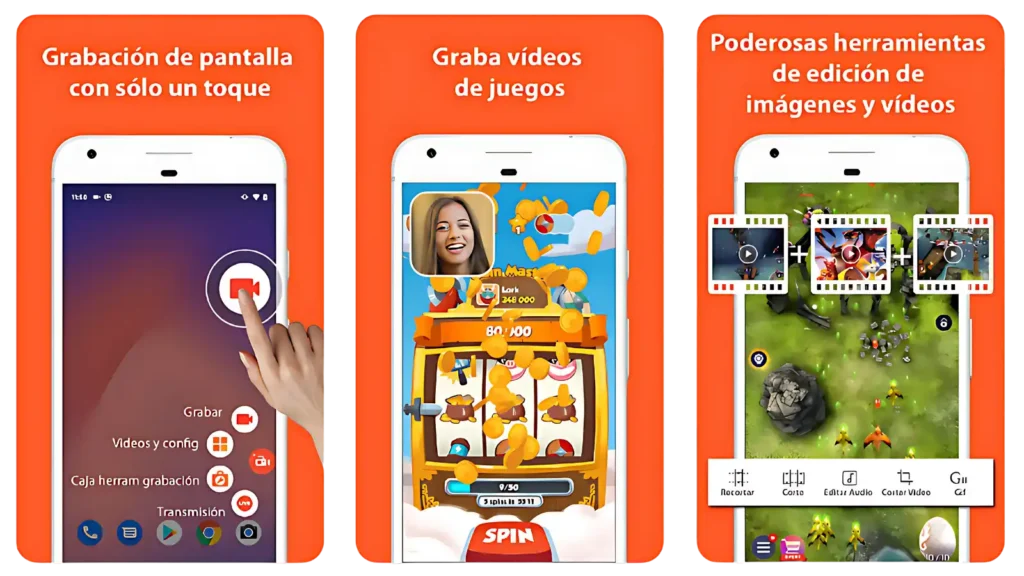
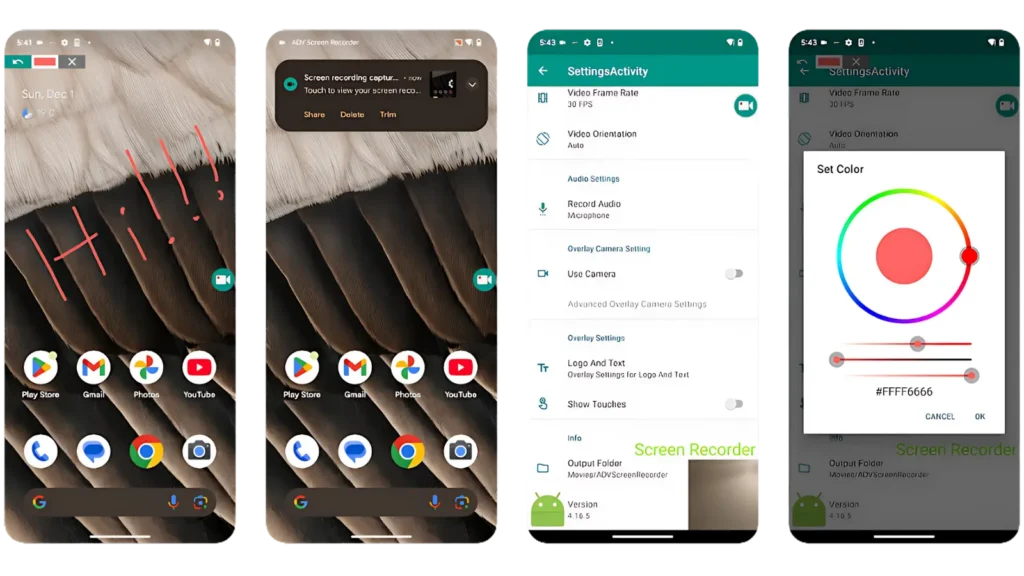
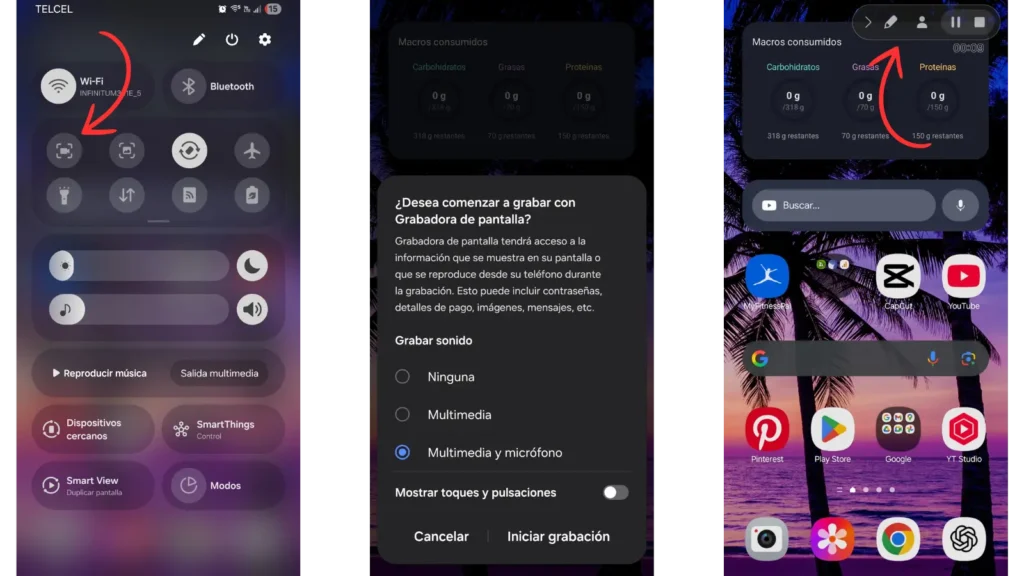

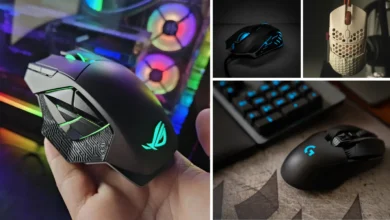



A genuinely useful read.